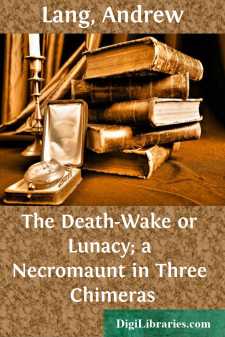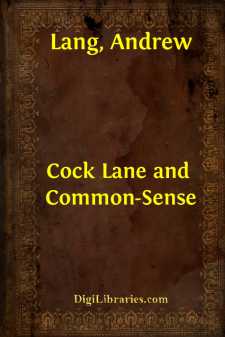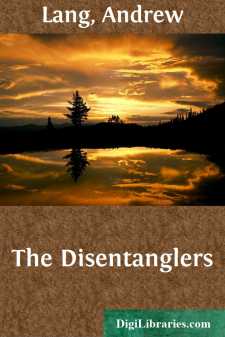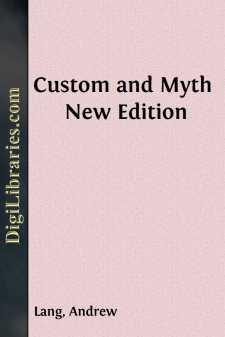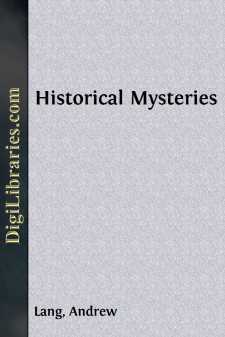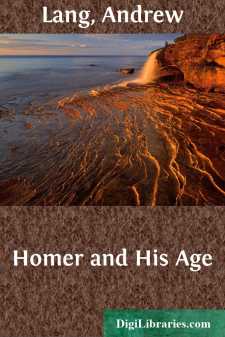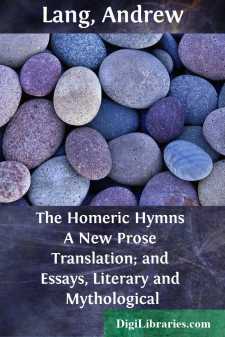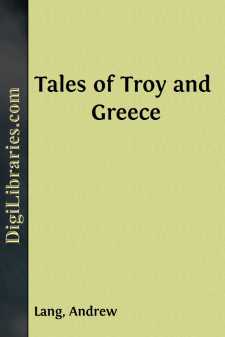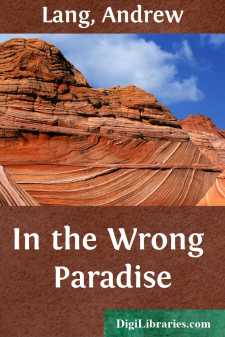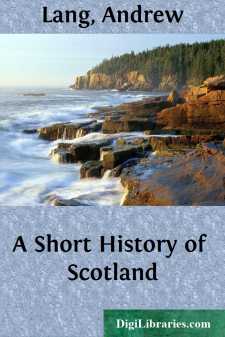Categories
- Antiques & Collectibles 13
- Architecture 36
- Art 48
- Bibles 22
- Biography & Autobiography 813
- Body, Mind & Spirit 142
- Business & Economics 28
- Children's Books 17
- Children's Fiction 14
- Computers 4
- Cooking 94
- Crafts & Hobbies 4
- Drama 346
- Education 46
- Family & Relationships 57
- Fiction 11829
- Games 19
- Gardening 17
- Health & Fitness 34
- History 1377
- House & Home 1
- Humor 147
- Juvenile Fiction 1873
- Juvenile Nonfiction 202
- Language Arts & Disciplines 88
- Law 16
- Literary Collections 686
- Literary Criticism 179
- Mathematics 13
- Medical 41
- Music 40
- Nature 179
- Non-Classifiable 1768
- Performing Arts 7
- Periodicals 1453
- Philosophy 64
- Photography 2
- Poetry 896
- Political Science 203
- Psychology 42
- Reference 154
- Religion 513
- Science 126
- Self-Help 84
- Social Science 81
- Sports & Recreation 34
- Study Aids 3
- Technology & Engineering 59
- Transportation 23
- Travel 463
- True Crime 29
Andrew Lang
Andrew Lang (1844-1912) was a Scottish poet, novelist, and literary critic, best known for his collections of fairy tales, notably the "Fairy Books" series, which includes titles like "The Blue Fairy Book" and "The Red Fairy Book." He was also a prolific scholar, contributing to the fields of anthropology, history, and folklore with works such as "Custom and Myth" and "Myth, Ritual, and Religion." Lang's work in popularizing folk and fairy tales has had a lasting influence on children's literature and the study of mythology.
Author's Books:
Sort by:
by:
Andrew Lang
INTRODUCTION The extreme rarity of The Death-Wake is a reason for its republication, which may or may not be approved of by collectors. Of the original edition the Author says that more than seventy copies were sold in the first week of publication, but thereafter the publisher failed in business. Mr. Stoddart recovered the sheets of his poem, and his cook gradually, and perhaps not injudiciously,...
more...
by:
Andrew Lang
PREFACE. Since the first publication of Cock Lane and Common-Sense in 1894, nothing has occurred to alter greatly the author’s opinions. He has tried to make the Folklore Society see that such things as modern reports of wraiths, ghosts, ‘fire-walking,’ ‘corpse-lights,’ ‘crystal-gazing,’ and so on, are within their province, and within the province of anthropology. In this attempt he...
more...
by:
Andrew Lang
I. THE GREAT IDEA The scene was a dusky shabby little room in Ryder Street. To such caves many repair whose days are passed, and whose food is consumed, in the clubs of the adjacent thoroughfare of cooperative palaces, Pall Mall. The furniture was battered and dingy; the sofa on which Logan sprawled had a certain historic interest: it was covered with cloth of horsehair, now seldom found by the...
more...
by:
Andrew Lang
PREFACE. Since the first publication of Custom and Myth, many other works have appeared, dealing on the same principles with matters of belief, fable and ritual. Were the book to be re-written, numerous fresh pieces of evidence might be adduced in support of its conclusions. In Mr. Frazer’s Golden Bough (Macmillan) the student will find a carefully conceived argument, and a large collection of...
more...
by:
Andrew Lang
IDon't let your poor littleLizzie be blamed!Thackeray. 'Everyone has heard of the case of Elizabeth Canning,' writes Mr. John Paget; and till recently I agreed with him. But five or six years ago the case of Elizabeth Canning repeated itself in a marvellous way, and then but few persons of my acquaintance had ever heard of that mysterious girl. The recent case, so strange a parallel to...
more...
by:
Andrew Lang
PREFACE In Homer and the Epic, ten or twelve years ago, I examined the literary objections to Homeric unity. These objections are chiefly based on alleged discrepancies in the narrative, of which no one poet, it is supposed, could have been guilty. The critics repose, I venture to think, mainly on a fallacy. We may style it the fallacy of "the analytical reader." The poet is expected to satisfy...
more...
by:
Andrew Lang
ESSAYS INTRODUCTORY THE SO-CALLED HOMERIC HYMNS “The existing collection of the Hymns is of unknown editorship, unknown date, and unknown purpose,” says Baumeister. Why any man should have collected the little preludes of five or six lines in length, and of purely conventional character, while he did not copy out the longer poems to which they probably served as preludes, is a mystery. The...
more...
by:
Andrew Lang
THE BOYHOOD AND PARENTS OF ULYSSES Long ago, in a little island called Ithaca, on the west coast of Greece, there lived a king named Laertes. His kingdom was small and mountainous. People used to say that Ithaca 'lay like a shield upon the sea,' which sounds as if it were a flat country. But in those times shields were very large, and rose at the middle into two peaks with a hollow between...
more...
by:
Andrew Lang
THE END OF PHÆACIA I. INTRODUCTORY. The Rev. Thomas Gowles, well known in Colonial circles where the Truth is valued, as “the Boanerges of the Pacific,” departed this life at Hackney Wick, on the 6th of March, 1885. The Laodiceans in our midst have ventured to affirm that the world at large has been a more restful place since Mr. Gowles was taken from his corner of the vineyard. The...
more...
by:
Andrew Lang
CHAPTER I. SCOTLAND AND THE ROMANS. If we could see in a magic mirror the country now called Scotland as it was when the Romans under Agricola (81 A.D.) crossed the Border, we should recognise little but the familiar hills and mountains. The rivers, in the plains, overflowed their present banks; dense forests of oak and pine, haunted by great red deer, elks, and boars, covered land that has long...
more...


